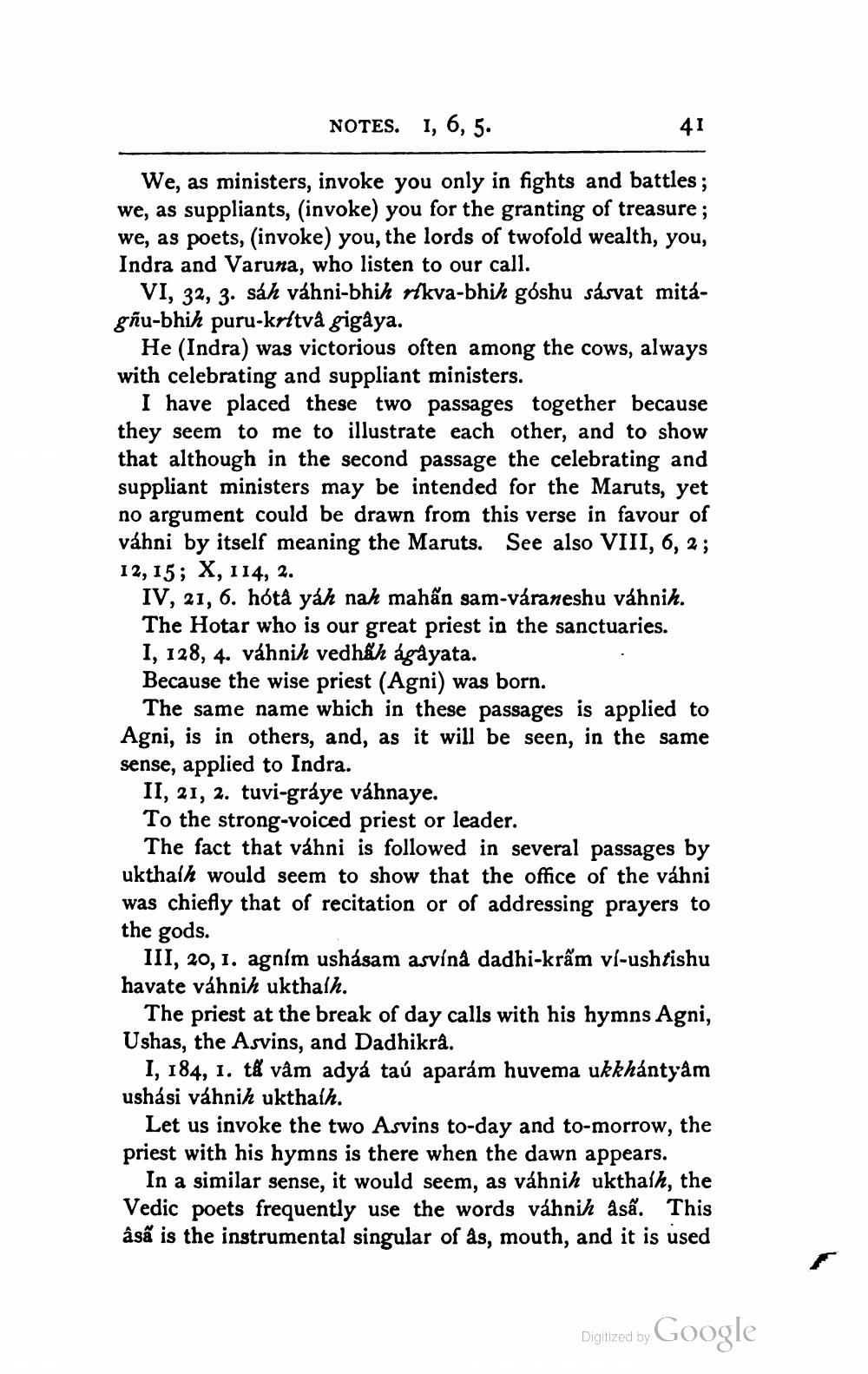________________
NOTES. 1, 6, 5.
41
We, as ministers, invoke you only in fights and battles ; we, as suppliants, (invoke) you for the granting of treasure; we, as poets, (invoke) you, the lords of twofold wealth, you, Indra and Varuna, who listen to our call.
VI, 32, 3. sáh váhni-bhih ríkva-bhih góshu sásvat mitágñu-bhih puru-krltvà gigaya.
He (Indra) was victorious often among the cows, always with celebrating and suppliant ministers.
I have placed these two passages together because they seem to me to illustrate each other, and to show that although in the second passage the celebrating and suppliant ministers may be intended for the Maruts, yet no argument could be drawn from this verse in favour of váhni by itself meaning the Maruts. See also VIII, 6, 2; 12, 15; X, 114, 2.
IV, 21, 6. hótå yåh nah mahấn sam-váraneshu váhnih. The Hotar who is our great priest in the sanctuaries. I, 128, 4. váhnih vedhih ágayata. Because the wise priest (Agni) was born.
The same name which in these passages is applied to Agni, is in others, and, as it will be seen, in the same sense, applied to Indra.
II, 21, 2. tuvi-graye váhnaye. To the strong-voiced priest or leader.
The fact that váhni is followed in several passages by ukthalh would seem to show that the office of the vahni was chiefly that of recitation or of addressing prayers to the gods.
III, 20, 1. agnlm ushásam asvina dadhi-krãm vl-ushtishu havate vahnih ukthalh.
The priest at the break of day calls with his hymns Agni, Ushas, the Asvins, and Dadhikra.
I, 184, 1. tá vám adya tau aparám huvema ukkhántyam ushási váhnih ukthash.
Let us invoke the two Asvins to-day and to-morrow, the priest with his hymns is there when the dawn appears.
In a similar sense, it would seem, as váhnih ukthalh, the Vedic poets frequently use the words váhnih asã. This âsã is the instrumental singular of as, mouth, and it is used
Digized by Google




